Issue:
Reporting and trying to understand the spread of Covid-19 dominated the news globally. While the news industry suffered threats of closure and staff furloughs like other industries, more and more people were getting their news online, even as online ad revenues plummeted. Here are some front pages of print editions from around the world a glimpse of the coverage and its import
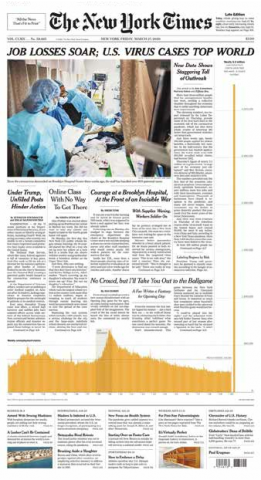
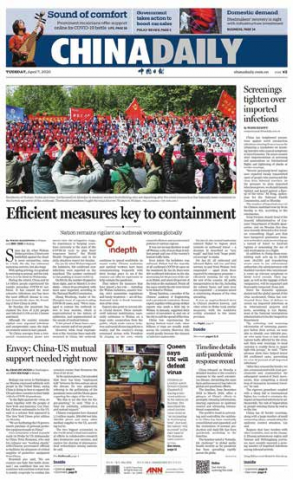
To an extent that no one would have expected a month ago, Japan is the best place to be among any of the big industrialised nations, for the time being at least. It is difficult to explain and frankly difficult to believe in. As terrible news comes in from the rest of the world, Japan feels like a fairyland into which grim reality is liable to explode at any moment.
– Richard Lloyd Parry, The Times
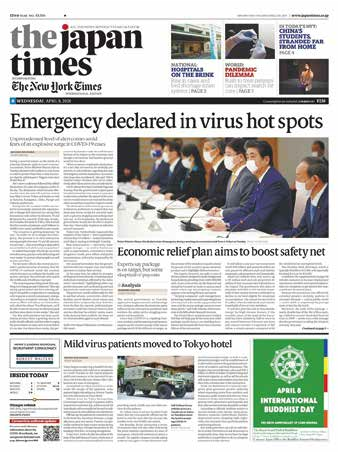
“In the first place, we managed to find the larger clusters and get them contained. But Japanese society is really poor at switching from Plan A to Plan B. We are poor at thinking about a plan B. Bureaucrats would rather complete the plan once laid,” [professor of infectious disease at Kobe University Hospital] Iwata explained.
– Asger Røjle Christensen, reporting Kentaru Iwata’s online appearance at the FCCJ, translated from the Danish in Ræson
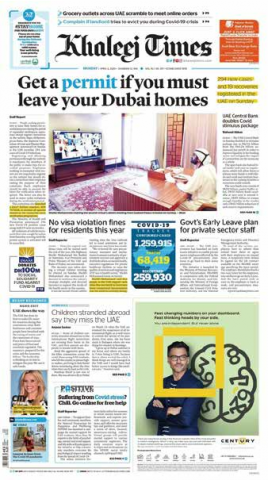
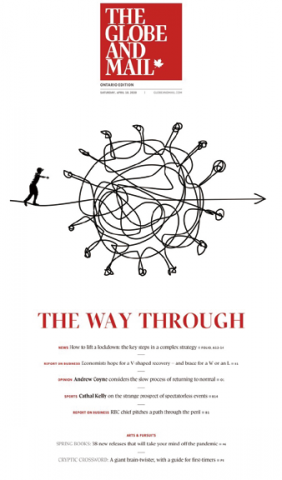
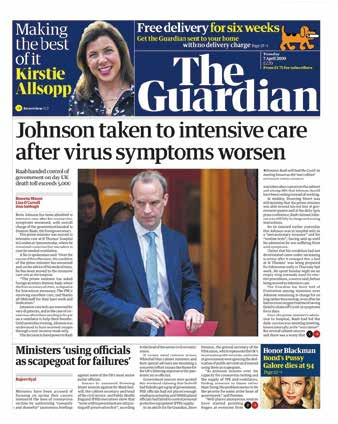
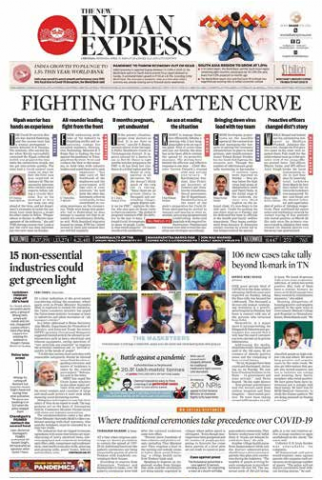
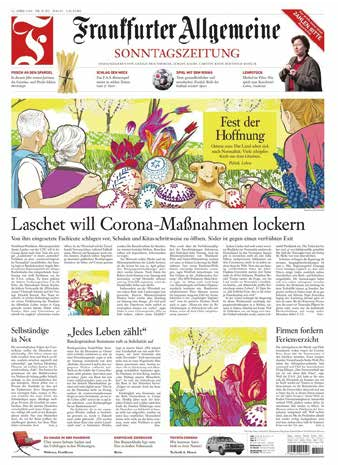
Disagreements between Koike and Abe over how far the emergency measures should go have quickly escalated since Tokyo’s 14 million residents were asked to stay home earlier this week amid record numbers of new cases.
– Justin McCurry, The Guardian
“Asking for residents to use self-restraint and stay home is not enough,” Koike said soon after Abe declared a state of emergency this week. “We should also restrict the use of cluster-causing facilities” such as restaurants and karaoke parlours, she said.

